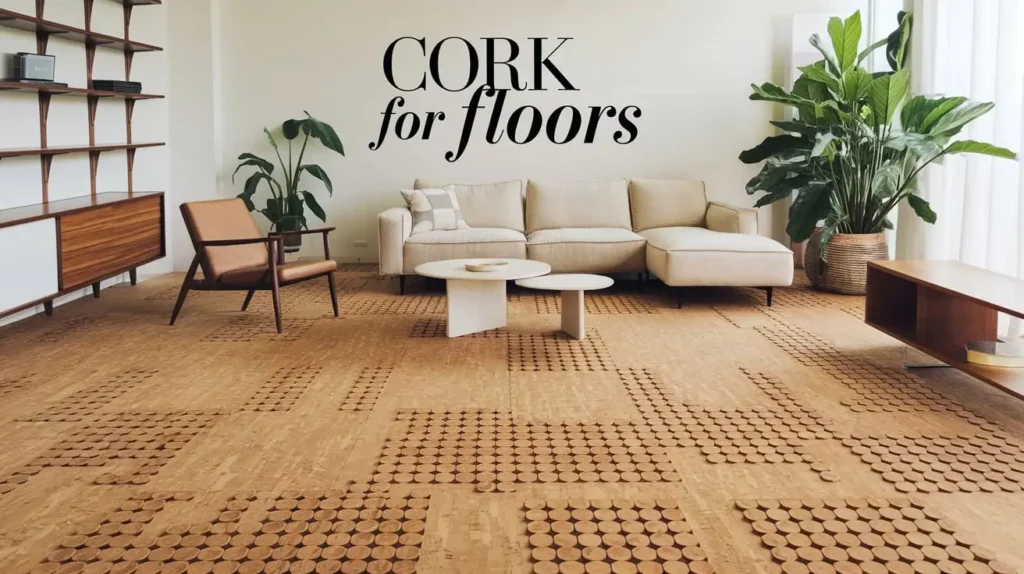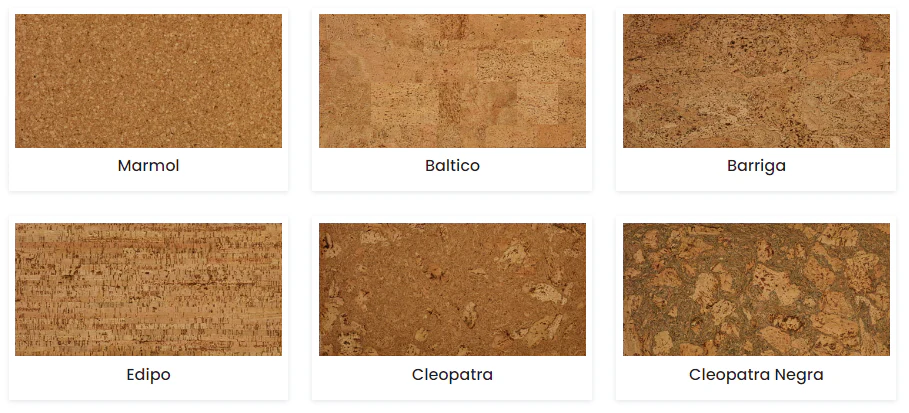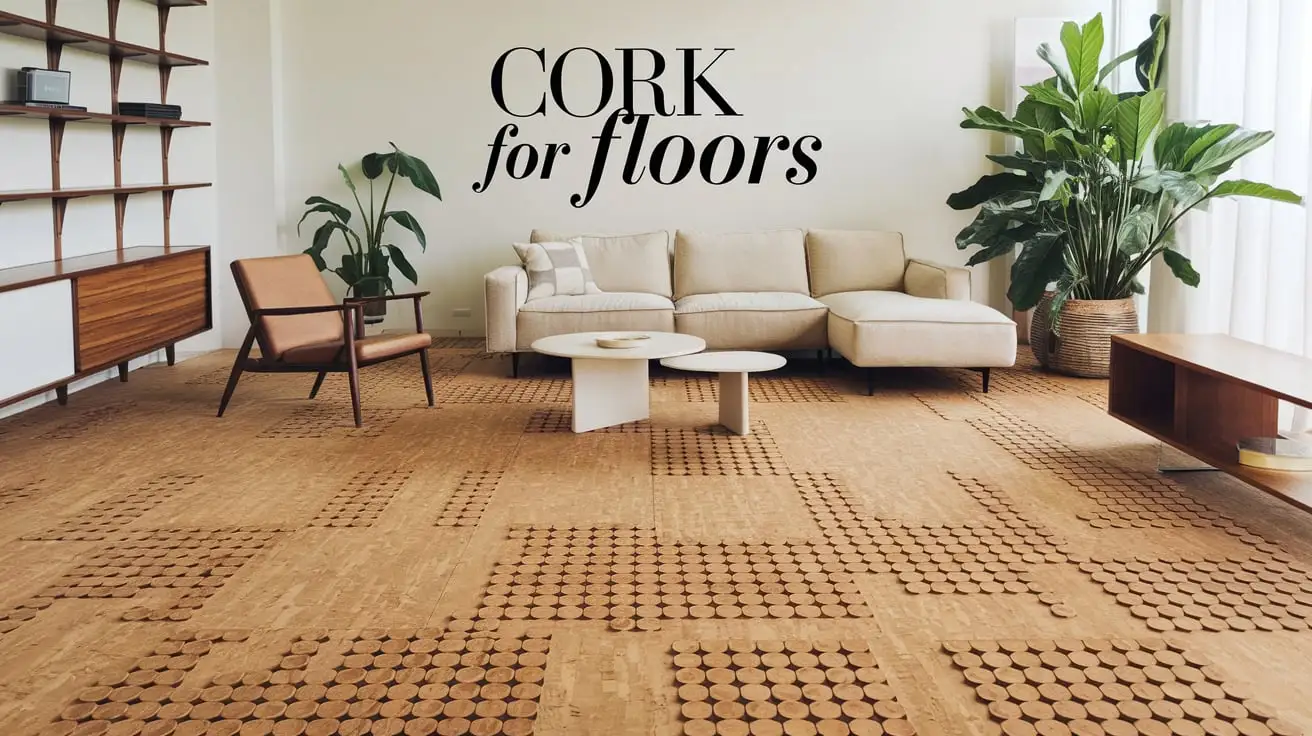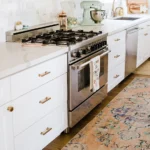Cork flooring is a sustainable and waterproof choice for your home, offering numerous benefits such as comfort, durability, and eco-friendliness. This article delves into the essential aspects of cork for floors, including types, advantages, maintenance, and installation methods.

Content
Understanding Cork Flooring
Cork for floors is crafted from the bark of the cork oak tree, which is harvested every nine years without harming the tree itself. This environmentally friendly process underscores cork’s appeal as a sustainable flooring material. Cork flooring comes in various forms, including floating cork flooring tiles and traditional cork tiles, catering to different design preferences and practical needs.
Varieties of Cork Flooring

Floating Cork Flooring
Floating cork for floors is designed to be installed over existing floors without the need for glue or nails. It consists of planks that click together, making it a popular choice for DIY enthusiasts.
Cork Tile Flooring
Cork tiles offer another option, available in various sizes and shapes. These tiles are typically glued down, allowing for unique patterns and designs that enhance visual interest.
| Type of Cork Flooring | Installation Method | Ideal Uses |
|---|---|---|
| Floating Cork Flooring | Click-lock system | Living rooms, bedrooms |
| Cork Tile Flooring | Glue-down installation | Kitchens, bathrooms |
Benefits of cork for floors
Eco-Friendly and Renewable
One of the most significant benefits of sustainable cork flooring is its renewable nature. Cork oak trees are not cut down; rather, their bark is harvested, allowing them to continue growing and absorbing carbon dioxide, which helps mitigate greenhouse gas emissions.
Insulation and Comfort
Cork’s natural properties provide excellent insulation against sound and temperature, making it comfortable to walk on and suitable for both warm and cool climates.
Durability
Cork flooring exhibits resistance to cracking and wear, thanks to its unique cellular structure. This durability makes it an excellent choice for households with pets and children.
Aesthetic Appeal
Available in various colors and patterns, cork for floors can complement any home décor, from modern to rustic styles.
| Benefits of Cork Flooring | Details |
|---|---|
| Eco-Friendly | Made from renewable resources |
| Insulation | Provides comfort and reduces noise |
| Durability | Resistant to cracking and wear |
| Aesthetic Appeal | Available in various colors and designs |
Waterproof Cork Flooring: Key Insights
Waterproof cork flooring enhances the natural water resistance of cork, making it suitable for areas prone to moisture, such as kitchens and bathrooms. While standard cork can absorb water if not properly sealed, waterproof options have been treated to withstand spills and humidity.
Ideal Spaces for Waterproof Cork Flooring
- Kitchens: Resistant to spills and stains, making cleaning easy.
- Bathrooms: Provides a warm, comfortable surface that holds up against moisture.
Evaluating Cork Flooring
Advantages
- Eco-Friendly: Sustainable harvesting practices make cork an environmentally responsible option.
- Comfort: Soft and warm underfoot, cork provides comfort in any season.
- Durability: Its resistance to wear makes it suitable for high-traffic areas.
- Hypoallergenic: Cork is resistant to mold and mildew, making it safe for allergy sufferers.
Disadvantages
- Cost: Cork flooring can be more expensive than some other materials.
- Maintenance: Requires regular upkeep to preserve its appearance and waterproof qualities.
- Potential for Dents: Heavy furniture or sharp objects can dent cork, particularly in high-traffic areas.
Installation Techniques for Cork Flooring
Floating Cork Flooring Tiles
Floating cork flooring tiles can be easily installed by interlocking the planks, making it a straightforward DIY project. Here’s a brief overview of the installation process:
- Prepare the Subfloor: Ensure the surface is clean, dry, and level.
- Lay Underlayment: Place an underlayment to provide cushioning and sound insulation.
- Install Planks: Begin laying the planks, connecting them at the edges.
- Finishing Touches: Install baseboards and trim for a polished look.
Cork Tile Installation
Cork tiles require glue for installation. Here’s a quick guide:
- Prepare the Surface: Clean and level the subfloor.
- Apply Adhesive: Use a recommended adhesive and spread it evenly on the subfloor.
- Place Tiles: Align and press the tiles firmly into the adhesive.
- Allow to Cure: Follow the adhesive manufacturer’s instructions for curing time.
Maintenance and Care for Cork Floors
To maintain cork for floors, follow these tips:
- Regular Cleaning: Sweep or vacuum to remove dirt and debris.
- Moisture Management: Clean spills immediately to prevent water damage.
- Avoid Harsh Chemicals: Use pH-balanced cleaners to avoid damaging the surface.
- Annual Sealing: Consider resealing every few years to maintain waterproof qualities.
Financial Considerations for Cork Flooring
The cost of cork flooring varies based on type and installation method. On average:
- Floating Cork Flooring: $3 to $6 per square foot.
- Cork Tile Flooring: $2 to $5 per square foot, excluding installation costs.
While cork for floors can be more expensive initially, its longevity and durability may offset the initial investment over time.
Environmental Impact of Cork Flooring
Cork’s sustainable harvesting practices significantly reduce its environmental impact. The cork oak tree not only helps combat climate change but also supports local economies. Look for certifications, such as FSC (Forest Stewardship Council), when purchasing sustainable cork flooring to ensure you are making an environmentally responsible choice.
Conclusion: Is Cork Flooring Right for You?
In summary, cork flooring offers a sustainable and waterproof solution for homeowners seeking an eco-friendly option. Its unique properties, including durability, comfort, and aesthetic appeal, make it a worthy consideration for any residence. By understanding the varieties, advantages, and maintenance requirements, you can make an informed decision about whether cork flooring is the right choice for your space.
Common Queries
Can cork flooring be waterproof?
Yes, waterproof cork flooring is available and designed to withstand moisture, making it suitable for areas like kitchens and bathrooms.
How long does cork flooring last?
With proper care, cork flooring can last 10 to 30 years, depending on the type and quality.
Is cork flooring suitable for high-traffic areas?
Yes, cork flooring is durable and can handle moderate to high traffic, although heavy items may cause dents.
What’s the difference between floating cork tiles and glued tiles?
Floating cork tiles interlock and do not require adhesive for installation, while glued tiles need to be adhered to the subfloor.

Elena Mohr is a dedicated home blogger who has been blogging for over six years. She covers everything home related. Elena also loves writing posts about her travels to Europe with her husband and two children.












